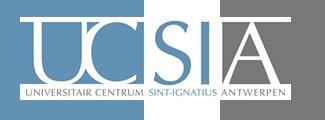The Family Kaleidoscope: Evolving Partnerships and Parenting
Given the predominance of the phenomenon of new family formation, should we not revisit the conviction that growing up in stable nuclear families forms the sole guarantee for the cognitive, social and emotional well-being of the next generation? Should we not reinterpret the connection between contextual and intra-familial processes and family structure?
Should social policy not support families in making transitions from one structure to the next and family law codes incorporate the rights of members of non-traditional families (cf. different approaches to parent’s rights in European countries and the adoption by the European Court of the distinction between biological, juridical and social parenthood)?
Since effects of transitions in family structure may be cumulative, in that they appear to influence children’s bonds to social institutions such as school which heightens risks for behavioural problems, the issue concerns society as a whole. Psychologists and educational experts are increasingly confronted with the effects on health, wellbeing and schooling.
UCSIA aims to investigate this emerging research field of new family formation from the perspective of the younger generation and its psychological and educational needs and wants to look into the sociological, juridical and economic effects of this development in bringing together experts from the relevant disciplines for a two day international workshop in Antwerp. Core questions are:
*What are the effects of new family formation patterns on the nature of parenting?
*How are future generations affected by these changes?
*What are the costs and benefits in psychological, social and economic terms?
*What is the long-term impact on the structure of society?
*What policy and legal measures are being devised?
The workshop consists of a two-day international meeting with specialized lectures and presentations and debates by invited senior and junior scholars. The aim is to offer a platform to scholars to present their research on the topic and exchange their ideas on research findings. Such a meeting may open up new multidisciplinary horizons to think about the topic.
Contact
UCSIA
Prinsstraat 14
B-2000 Antwerpen
marijke.celis@ua.ac.be
Belgium Tel. +32 (0)3 265 49 60
Fax +32 (0)3 707 09 31

